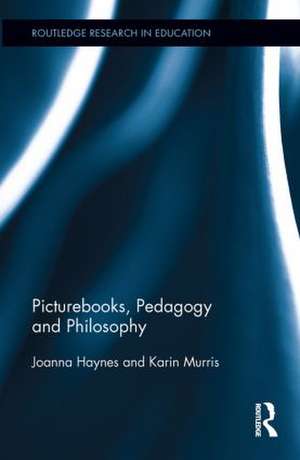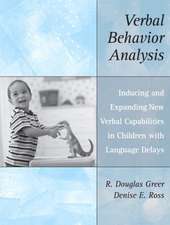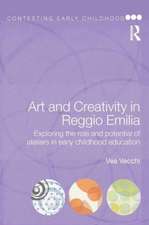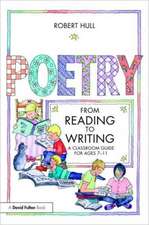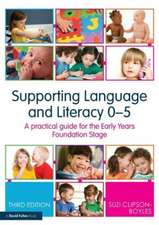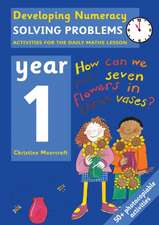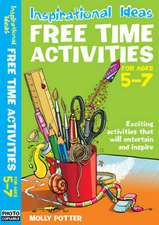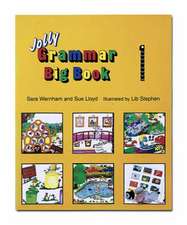Picturebooks, Pedagogy and Philosophy: Routledge Research in Education
Autor Joanna Haynes, Karin Murrisen Limba Engleză Paperback – 13 noi 2012
| Toate formatele și edițiile | Preț | Express |
|---|---|---|
| Paperback (1) | 425.87 lei 6-8 săpt. | |
| Taylor & Francis – 13 noi 2012 | 425.87 lei 6-8 săpt. | |
| Hardback (1) | 1062.98 lei 6-8 săpt. | |
| Taylor & Francis – 27 sep 2011 | 1062.98 lei 6-8 săpt. |
Din seria Routledge Research in Education
-
 Preț: 310.29 lei
Preț: 310.29 lei -
 Preț: 304.19 lei
Preț: 304.19 lei -
 Preț: 303.18 lei
Preț: 303.18 lei -
 Preț: 147.15 lei
Preț: 147.15 lei -
 Preț: 303.89 lei
Preț: 303.89 lei -
 Preț: 302.17 lei
Preț: 302.17 lei -
 Preț: 303.75 lei
Preț: 303.75 lei -
 Preț: 290.73 lei
Preț: 290.73 lei - 8%
 Preț: 381.60 lei
Preț: 381.60 lei - 9%
 Preț: 867.43 lei
Preț: 867.43 lei -
 Preț: 304.83 lei
Preț: 304.83 lei -
 Preț: 377.85 lei
Preț: 377.85 lei -
 Preț: 401.01 lei
Preț: 401.01 lei -
 Preț: 310.65 lei
Preț: 310.65 lei -
 Preț: 364.04 lei
Preț: 364.04 lei -
 Preț: 129.83 lei
Preț: 129.83 lei -
 Preț: 310.08 lei
Preț: 310.08 lei -
 Preț: 310.22 lei
Preț: 310.22 lei -
 Preț: 310.31 lei
Preț: 310.31 lei - 8%
 Preț: 381.99 lei
Preț: 381.99 lei -
 Preț: 276.13 lei
Preț: 276.13 lei - 9%
 Preț: 935.36 lei
Preț: 935.36 lei -
 Preț: 303.89 lei
Preț: 303.89 lei -
 Preț: 358.67 lei
Preț: 358.67 lei -
 Preț: 400.72 lei
Preț: 400.72 lei - 18%
 Preț: 1060.52 lei
Preț: 1060.52 lei - 18%
 Preț: 1116.74 lei
Preț: 1116.74 lei -
 Preț: 397.75 lei
Preț: 397.75 lei - 18%
 Preț: 1221.80 lei
Preț: 1221.80 lei - 18%
 Preț: 1110.74 lei
Preț: 1110.74 lei - 18%
 Preț: 1053.92 lei
Preț: 1053.92 lei - 18%
 Preț: 1162.84 lei
Preț: 1162.84 lei - 18%
 Preț: 1063.65 lei
Preț: 1063.65 lei - 28%
 Preț: 851.82 lei
Preț: 851.82 lei - 18%
 Preț: 1054.75 lei
Preț: 1054.75 lei - 18%
 Preț: 1054.58 lei
Preț: 1054.58 lei - 18%
 Preț: 1178.85 lei
Preț: 1178.85 lei - 18%
 Preț: 1111.72 lei
Preț: 1111.72 lei - 18%
 Preț: 1057.75 lei
Preț: 1057.75 lei -
 Preț: 489.03 lei
Preț: 489.03 lei - 18%
 Preț: 1059.14 lei
Preț: 1059.14 lei - 18%
 Preț: 1050.09 lei
Preț: 1050.09 lei - 18%
 Preț: 1060.52 lei
Preț: 1060.52 lei - 18%
 Preț: 1062.98 lei
Preț: 1062.98 lei - 18%
 Preț: 1056.28 lei
Preț: 1056.28 lei - 18%
 Preț: 1217.63 lei
Preț: 1217.63 lei - 18%
 Preț: 1060.19 lei
Preț: 1060.19 lei - 18%
 Preț: 1170.84 lei
Preț: 1170.84 lei - 18%
 Preț: 1167.36 lei
Preț: 1167.36 lei
Preț: 425.87 lei
Nou
Puncte Express: 639
Preț estimativ în valută:
81.50€ • 84.77$ • 67.28£
81.50€ • 84.77$ • 67.28£
Carte tipărită la comandă
Livrare economică 12-26 aprilie
Preluare comenzi: 021 569.72.76
Specificații
ISBN-13: 9780415817929
ISBN-10: 0415817927
Pagini: 284
Ilustrații: 35 black & white illustrations, 1 black & white tables, 34 black & white halftones, 1 black & white line drawings
Dimensiuni: 152 x 229 x 23 mm
Greutate: 0.53 kg
Ediția:1
Editura: Taylor & Francis
Colecția Routledge
Seria Routledge Research in Education
Locul publicării:Oxford, United Kingdom
ISBN-10: 0415817927
Pagini: 284
Ilustrații: 35 black & white illustrations, 1 black & white tables, 34 black & white halftones, 1 black & white line drawings
Dimensiuni: 152 x 229 x 23 mm
Greutate: 0.53 kg
Ediția:1
Editura: Taylor & Francis
Colecția Routledge
Seria Routledge Research in Education
Locul publicării:Oxford, United Kingdom
Cuprins
Introduction: Censorship and Controversy in the Classroom Part One: Provocative Picturebooks 1. Playing with Dangerous Picturebooks 2. Not So Innocent Picturebooks 3. From Philosophical Novels to Picturebooks 4. Picturebooks as Philosophical Texts 5. Emotions and Picturebooks 6. Literary and Philosophical Responses to Picturebooks Part Two: Being Child 7. Slippage Between Realms 8. Talking Dogs and Moving Bears: The Realm of Meaning 9. Philosophy, Adult and Child 10. Authenticity of Knowledge and Understanding Part Three: Philosophical Listening 11. Listening and Juggling in Philosophical Space 12. Listening and Not Listening in Schools 13. Towards a Critical Practice of Philosophical Listening. Appendix A: List of Picturebooks Discussed in the Book
Recenzii
"Philosophy is the main focus of this thought-provoking book. Building on and extending the ideas of philosophy for children that were developed in the mid-1990s, the authors argue for a community of inquiry where children, using picture books as a stimulus, do philosophy by examining the questions that the books raise through the gap between the text and the visual images. Children often pick up more on the visual, while adults tend to focus more on words. The authors' criteria for selecting appropriate books are useful. Teachers need to learn alongside children and be willing to enter unknown territories and not seek to control children by controlling the discussion. Children as well as teachers should generate questions. Haynes and Murris's analysis of the educational trends in Great Britain is also applicable to education in the US. Their questions about the nature of childhood and the impact of postmodernism on teaching and learning practices should generate discussion among teachers, whom the authors feel would also benefit from doing philosophy. Rich with information and insights, this is a valuable addition to discussions of education. Summing Up: Highly Recommended." -- S. Sugarman, emerita, Bennington College,Vermont State Colleges in CHOICE
Descriere
Contemporary picturebooks open up spaces for philosophical dialogues and offer unique opportunities to explore ideas and to create meaning collaboratively. Through a lively exploration of children’s responses to picturebooks, the authors paint a way of working philosophically based on respectful listening and creative and authentic interactions, rather than scripted lessons.
